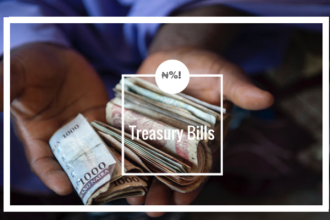The Central Bank of Nigeria has announced that Nigeria achieved a current account surplus of $3.73 billion in the first quarter of 2025.
This represents a marginal increase from the $3.69 billion surplus recorded in the same period last year, though slightly lower than the $3.8 billion surplus in the fourth quarter of 2024.
In its Balance of Payments report for Q1 2025, the CBN stated, “Provisional BOP statistics for Q1’25 show a current account surplus of $3.73 billion, which was lower than the $3.8 billion recorded in the previous quarter, but slightly higher than the $3.69 billion recorded in the corresponding period of 2024.”
The apex bank attributed the surplus to several key factors including an improved goods account balance, growth in non-oil exports, reduced non-oil imports, and sustained surplus in secondary income. The goods account balance increased significantly from $2.62 billion to $4.16 billion during the quarter.
Import figures declined to $9.75 billion in Q1 2025 from $10.05 billion in Q4 2024, driven largely by reductions in petroleum products and non-oil imports. Meanwhile, non-oil exports grew by 30.39 per cent to $2.66 billion, while gas exports increased from $2.10 billion to $2.66 billion. Non-oil imports decreased from $7.37 billion to $6.77 billion, contributing to the positive balance.
The CBN noted that the higher positive balance in the goods account was driven by a 9.79 per cent increase in exports to $13.91 billion in Q1 2025. This growth stemmed from increased oil and gas export earnings as well as non-oil exports. The bank explained, “This development was triggered by higher quantity of oil & gas exported and depreciation of the naira, which made our non-oil exports cheaper/more competitive.”
However, the report highlighted some concerning trends in other current account components. Net out-payments in the services account increased to $3.69 billion in Q1 2025 from $3.48 billion in Q4 2024, primarily due to higher net imports of travel and other business services. Net receipts in financial services decreased significantly during the period.
The debit balance in the primary income account grew by 13.48 per cent to $2.02 billion, attributed to higher interest payments to non-resident investors. The secondary income account surplus declined by 17.86 per cent to $5.29 billion, which the CBN linked to reduced inflows of foreign aid and grants, potentially influenced by a recent U.S. executive order.
Workers’ remittances from Nigerians in the diaspora also decreased slightly to $4.93 billion in Q1 2025 from $5.08 billion in the previous quarter. The report underscores Nigeria’s improving trade position while identifying areas needing policy attention to sustain economic stability.







